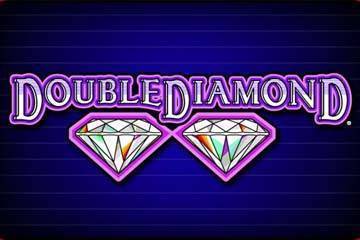The Casino Floor Of Tomorrow: Gen Z Is The Next Generation Of Players

Casino floors are rapidly evolving and the casino industry is on the precipice of another dramatic change. In fact, traditional slot machine usage has been on a steady decline over the past decade, and many casinos have been searching for a way to appeal to the younger generation who, for the most part, do not prefer to gamble on slot machines. Through these recent changes, it’s now been determined that these younger generations, Millennials and Gen Z, don’t have the same propensity for gambling as their older counterparts once had. That is why the traditional model of “know your customer” must now take into consideration a new generation of potential players, one that views the casino floor and gambling in general much differently.
After the Professional and Amateur Sports Protection Act (PASPA) was overturned in 2018, the legalization and launch of online sports betting has attracted a younger demographic and therefore a new way for gambling to be perceived. According to a recent Pew Research Center survey, around 1 in 5 U.S. adults (19%) say they have personally bet money on sports in some way in the last 12 months, whether with friends or family, in person at a casino or other gambling venue, or online with a betting app. It has now become apparent that casinos must now optimize themselves according to the taste of this younger generation, rendering and transforming new experiences. In an effort to gain more insight into what the casino of tomorrow now looks like, I spoke with several gaming executives: Alex Monahan, CEO at OddsJam, Cooper Lycan, Founder and CEO of SoBet, and Christopher Justice, President at Global Payments Gaming Solutions.
Jeff Fromm: What does the best in-class casino of tomorrow look like?
Alex Monahan: The best-in-class casino of tomorrow is a truly integrated hybrid of the in-person and online experiences we’ve come to know. “Omnichannel” is a popular buzzword nowadays and for good reason, as it’s paving the way for operators to leverage digital innovations such as cashless payments and online rewards programs in a way that seamlessly ties them into legacy products and experiences. On the sports betting side, it’s all about the breadth of markets and products offered. Right now, you can use your phone to bet on everything from the first touchdown scorer to alternate yard totals for skill-position players to the exact score of a football game. Or you can integrate all those bets into a massive Same Game Parlay. That’s what today’s bettor wants. Retail sportsbooks don’t yet have the resources to offer the same types of products, but once they do it’s going to unlock a whole new level of the in-person betting experience.
Cooper Lycan: The digital and mobile gambling space currently has a leg up on their analog counterparts because the online space tends to be more inclusive than casinos. The casino of tomorrow will have to adjust to shifting consumer behaviors of an increasingly more diverse, less male-dominated audience.
As we are observing this generational shift, the only way to appeal to that younger demographic is by creating welcoming spaces that reflect Gen Z and younger Millennial values.
Right now, there's not really a place for Gen Z, women, and casual bettors in the ecosystem other than social media. Extending this community to the physical will be key for the future success of gambling spaces – whether that's online or offline.
Additionally, online and mobile gambling activity should incentivize real-life experiences and vice-versa with, for instance, currencies and loyalty points that are redeemable in both places.
Fromm: What is the future of iGaming? How do you see Millennials and Gen Z leading the evolution of this category?
Monahan: At a macro level, the future is less of a focus on “handicapping” and a bigger emphasis on data. Gen Z was born into the digital age and has grown up surrounded by data. The younger generation as a whole is simply more data-driven and analytical, which has borne itself out in the rise of Robinhood, StockX, WallStreetBets etc. Now that sports betting is gaining widespread prominence, it’s merely becoming a new application stemming from that same greater ethos. From an operator perspective, the goal is to leverage that growing swell and create an efficient on-ramp to a wider online casino offering for the digitally-savvy user, but fewer states and tighter regulations represent notable roadblocks.
Fromm: What are the major trends to watch in 2023?
Christopher Justice: Modern payments solutions use innovative technology that helps companies save money and gives them immediate access to their hard-earned money.
The gaming industry has enjoyed an unprecedented period of growth, and while that growth may slow with the rest of the economy, many aspects of the gaming industry will likely continue to grow. iGaming, and specifically sports betting, have continued to grow even as the economy slackens. As more states legalize sports gambling, the sports betting sector will continue to flourish.
Fromm: What have you recently adapted to resonate more with your Gen Z audience?
Lycan: Currently, Gen Z and younger Millennial gamers are not served well by the gambling ecosystem that is either too difficult to understand for the casual bettor or serves up unappealing content.
As social media has become the primary search engine for any kind of information, including gaming and sports betting, SoBet is providing content in formats that fit the needs of the next generation such as creator-led videos and tweet-like write-ups.
It's about meeting younger audiences where they are with creator content that is native to Gen Z media habits and delivered by experts they trust and can identify with.
Access to easy to understand information is what we believe to be most important to the ecosystem. As a casual bettor, you can look up four or five of these creators, watch a simple 20 second video and make a quicker and more informed decision.
Fromm: Have you seen generational trends in who you are hiring? How does this affect hiring and retention efforts?
Monahan: Definitely. So many young people have trended toward sports betting as an extension of the things they’re already doing in their everyday lives. Everyone’s a day trader, a content creator. From a hiring perspective, that’s helped open up an entirely new pool of talent. We’ve brought on a bunch of people from our customer base, from OddsJam evangelists and power users to creators. We love the passion of new, young sports bettors. Gambling is meant to be fun, exciting and inclusive. The younger generation really grasps that, which has frankly made it easy for us to build a passionate and hyper engaged team.
Jeff Fromm: How will Gen Z consumers use payments in the future?
Justice: We are finding that Gen Z (as well as a high percentage of Gen X and Y) are less likely to use cash and cards and more likely to use modern payments methods. The convenience offered by innovative payments solutions like mobile and contactless payments appeal more to Gen Z, who are already primed to adopt digital payments options. As the payments industry moves to more digital payments solutions, Gen Z will likely continue to use those payments options.
Gen Z’s payments preferences in the gaming industry is still an open question. Casino patrons are usually 50 years old and up. With that said, we are seeing multiple generations adopting digital payments methods when and where they are available.
Fromm: What can other CEOs learn from your strategy?
Justice: Our strategy has been to create a suite of solutions that both help casinos improve their operations and enhance the payments experience. We’ve done that by creating a robust, effective e-check network and building our other solutions around it. For the patron at the casino, depositing their money is the most important part of the payments experience. A casino can offer a slick UI and exciting deals, but if patrons cannot get their money in or out without a hassle, they will take their business elsewhere next time. The payment fundamentals are the most essential part of the entire solution.
































